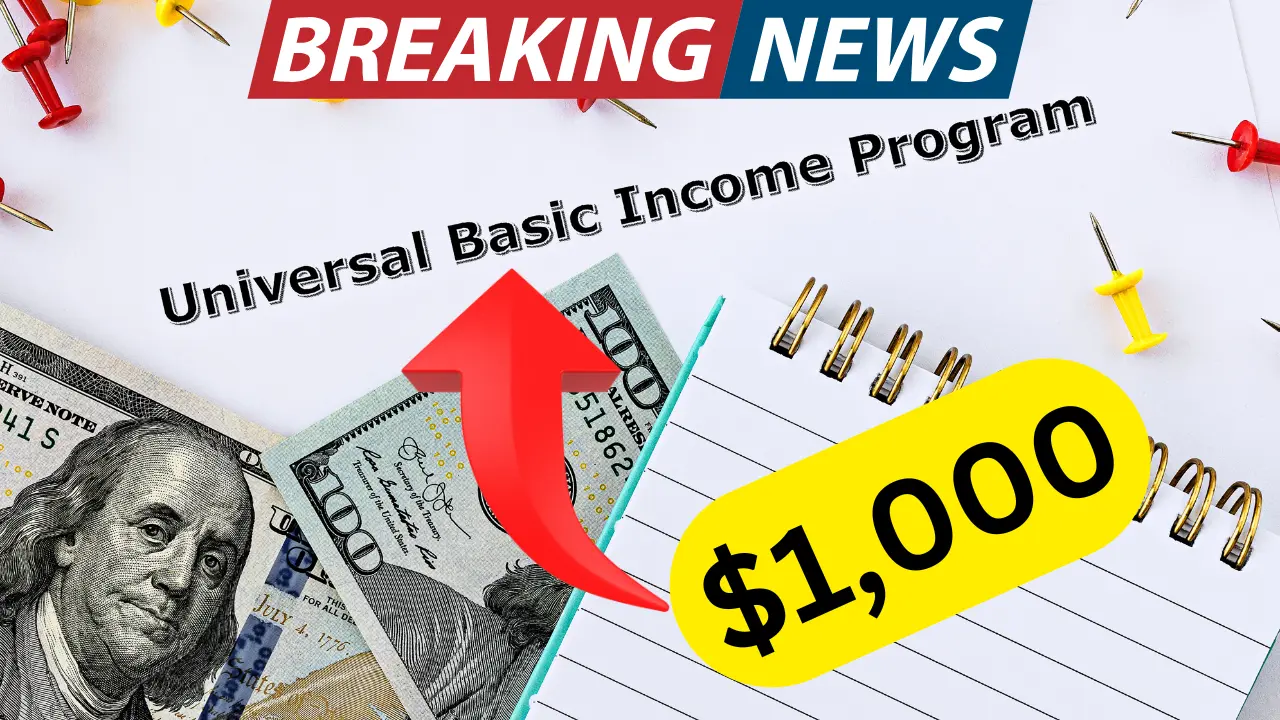One idea gaining traction in the United States as a potential solution to economic inequality, job displacement, and poverty is Universal Basic Income (UBI).
The concept is simple: every adult citizen would receive a fixed amount of money each month, regardless of employment status or income level.
A UBI payment of $1,000 has been widely debated, particularly as globalization, automation, and the pandemic have highlighted the need for financial stability during uncertain times.
Although several pilot projects have been conducted in various states, the $1,000 UBI initiative still faces significant political, economic, and logistical challenges.
Supporters argue that UBI can reduce poverty, boost consumer spending, and provide individuals with financial security to pursue education, entrepreneurship, or caregiving roles. However, critics question its cost-effectiveness and potential impact on work incentives.
Universal Basic Income Program Overview
| Program | $1,000 Universal Basic Income in the U.S. (2025) |
| Amount | $1,000 per month |
| Country | United States |
| Purpose | Reduce poverty, provide financial security, and address economic instability |
| Eligibility | Based on income, residency, and other local government criteria |
| Pilot States | California, New York, and other select locations |
| Payment Mode | Direct deposit into recipients’ bank accounts |
| Expected Start Date | August 2025 (varies by location) |
Purpose and Benefits of UBI
The primary goal of UBI is to create a financial safety net for those facing economic difficulties. Several communities in California and New York have launched UBI pilot programs to improve the quality of life for low-income residents.

Payments range from $100 to $1,000 per month, providing beneficiaries with unrestricted funds for essential expenses. This initiative aims to stabilize the economy by ensuring financial security for all participants.
Eligibility Required for UBI Payment
UBI programs typically have fewer restrictions than traditional assistance programs, making them accessible to a broader range of individuals. However, to qualify for the $1,000 monthly payment, applicants must meet specific criteria:
- Income Level: Low-income households are the primary focus. The exact income threshold varies by state and city, but it generally must be below a certain limit set by local governments.
- Residency: Applicants must be U.S. citizens and legal residents. Some programs require a minimum period of residence in the participating city or state.
- Age Requirements: Some UBI programs impose age restrictions. For example, certain initiatives may prioritize young adults, seniors, or other specific demographics.
Local governments may adjust these criteria based on feedback from initial rollouts. Staying informed about program updates is essential.
Who Qualifies for the UBI Program?
Eligibility for the $1,000 UBI program typically prioritizes specific groups:
- Low-Income Individuals and Families: Those earning below the poverty line or falling within a designated low-income category.
- Vulnerable Populations: Including individuals with disabilities, the elderly, and those experiencing housing instability.
- Young Adults and Students: A low-income student attending community college while balancing caregiving responsibilities may qualify for support.
Potential recipients should verify their eligibility through official local government channels to ensure a smooth application process.
How to Apply for the UBI Program
Applying for UBI is straightforward but requires accuracy. Follow these steps:
- Online Application: Most programs allow applications through local government websites.
- Complete the Form: Provide accurate and up-to-date information to avoid processing delays.
- Submit Supporting Documents: Required documents typically include proof of identity, residency, and income.
- Follow Up: After submission, applicants may need to check their application status with local authorities.
Once approved, recipients will receive a notification, and payments will begin according to the local government’s schedule.
UBI Program Payment Schedule
The $1,000 UBI payment schedule varies based on the administering local authority. While some cities have tentatively set a start date for August 2025, applicants should check their local government’s official website for the most accurate information.
Most payments are issued monthly via direct deposit. Keeping track of official government updates ensures recipients stay informed about disbursement dates.
Final Thoughts
The proposed $1,000 Universal Basic Income in the U.S. offers both promise and challenges. As the country grapples with economic inequality, job displacement, and technological advancements, UBI presents a bold approach to ensuring financial security for all.
| Homepage | https://uhmychart.org/ |
The potential benefits are clear: reducing poverty, stimulating economic activity, and providing stability to millions. However, concerns about funding, long-term feasibility, and work incentives remain.
As data from pilot programs continues to emerge and public support for UBI grows, policymakers must carefully consider how to implement this initiative on a national scale. The coming years will determine whether UBI becomes a permanent part of U.S. economic policy or remains an ambitious but unfulfilled vision.






